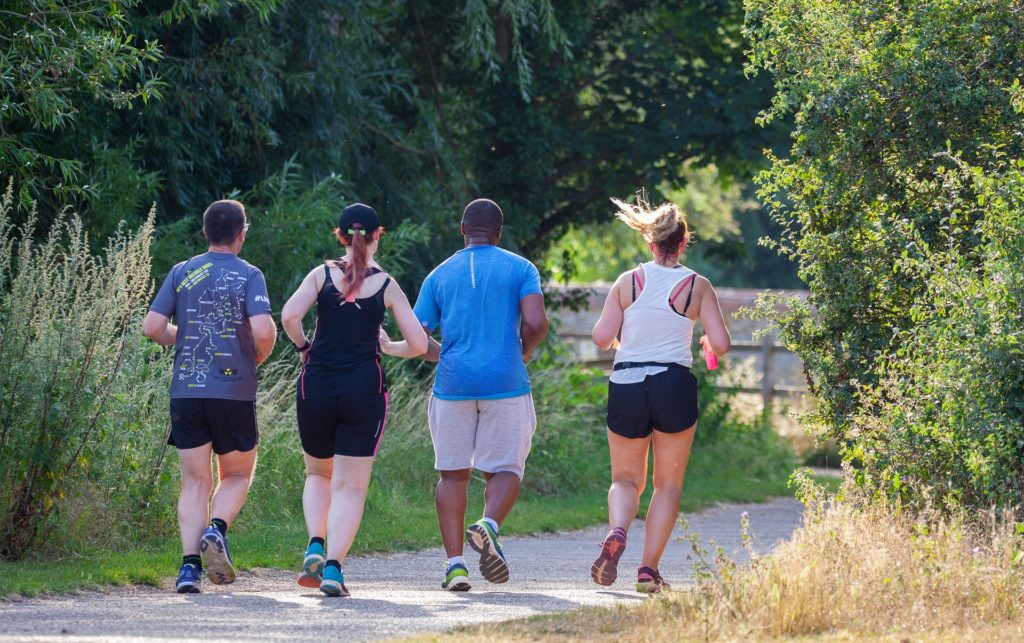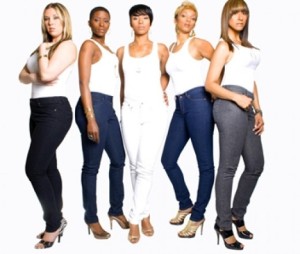- Calls to this hotline are currently being directed to Within Health, Fay or Eating Disorder Solutions
- Representatives are standing by 24/7 to help answer your questions
- All calls are confidential and HIPAA compliant
- There is no obligation or cost to call
- Eating Disorder Hope does not receive any commissions or fees dependent upon which provider you select
- Additional treatment providers are located on our directory or samhsa.gov
Feeling Better about Your Body and Weight


One of the biggest mistakes we make about body image is putting too much emphasis on the “body” aspect of this psychological experience.
Each one of us has a ‘body image’ made up of thoughts like:
- I hate my thighs
- I wish I was taller
How we feel about our body:
- Disgusted
- Ashamed
- Discouraged
Felt sense we have within our bodies:
- Big or small
- Lightness or heaviness
- Energetic or lethargic
Actions we do or don’t do:
- What clothes we wear
- How we carry ourselves
- Whether we’ll exercise in public
Thinking about body image in this multi-faceted way should remind us that it’s about more than what we see when we look in the mirror. In fact, the actual body we see may only play a small part in determining how we think and feel about our body. We’ll come back to this point again.
Understanding Your body Image
It’s not newsworthy to note that the body sentiments we often experience are not positive. Regardless of the number on the scale or our clothing size, regardless of our gender, age, or race, body image dissatisfaction can affect us all. Body dissatisfaction is so common that experts use the term “normative discontent” to describe the western sociocultural norm of disliking our bodies.
What are so many of us experiencing? For many, we’re unsettled by the discrepancy between our real-person bodies and the exceedingly slender, muscular physique we’ve been told will make us successful, attractive, and happy.
In this context, the further we perceive ourselves to be from this ideal, based on weight or other physical attributes, the greater our discontent may be. Sadly, the outright rejection, exclusion, criticism, and mistreatment that occur when one’s body is far from the culturally-idealized standard make things worse. In these cases, the degree of body image dissatisfaction can become deeply emotionally painful and bring significant barriers to living fully.
Understanding Where Body Image Comes From
But remember the statement earlier about our body image having less to do with our actual body than we tend to think? Body image dissatisfaction can be as strong in the underweight high-schooler as it is the obese college student. There’s more to the story about body image than weight and physical appearance.
Typically operating outside of conscious thought, the body can easily become the battleground for any number of fears and conflicts we face in our lives. Feelings or doubts about ourselves in general (“am I a good person?” or “will others like me?”) can impact our body image. Although it might seem like it has nothing to do with body image, our fears about the direction our life is going or should go and decisions we need to make can also influence how we’re feeling in our bodies.
How Relationships Affect Body Image
Even relationship issues such as conflict with family members, fears of rejection by friends or romantic partners, and separating from parents have a role in our experience of our body. How does this work? There’s no perfect answer to that, of course, but consider how messy and uncertain and overwhelming the challenges we face in our lives can be.
We certainly don’t always know what to do or how to handle problems, and often we just want to avoid dealing with all of the difficult stuff. That’s where body dissatisfaction can come in.
For one, it’s likely that if we’re feeling insecure and troubled on the inside part of us, that will show up in our feelings about the outside part of us, too. Second, becoming preoccupied and overly-focused on the ‘problems’ with our bodies and spending lots of time and mental energy thinking about and trying to fix these problems can offer a distraction and an apparently more concrete, controllable challenge to conquer.
Increasing Body Image Dissatisfaction
The downsides, though, can be devastating and unintentionally create more problems. As body image dissatisfaction increases, we might get more depressed or anxious, and withdraw from people, situations, and activities that are good for us. And then there’s the promise we make to ourselves: “When I … (lose weight, get more toned, fix my problem body part, etc), then I will … (go out more, see my friends, meet new people, join a gym, enroll in school, look for work, etc).
So we wait and live with our distress and constant thought about how flawed our body is and what we should be doing about it. Meanwhile, putting activities and relationships and life on hold, all the while believing we’re not happy because of our body, not because we have put our life on hold.
Addressing Body Image Dissatisfaction
You probably know where this is going by now, and it might make you uncomfortable. The things that you have been holding back from doing because you feel too self-conscious about your body may be the very things you need to help you live your healthiest lifestyle.
Taking your life off hold, re-engaging in relationships, activities, and new pursuits are, paradoxically, part of what it takes to feel better about yourself, including your body.
Similarly, if there are issues you have not been dealing with such as emotions, conflicts, decisions, fears, relationships that have channeled themselves into body image preoccupation, it may be time to look inside, identify what those are, and seek some guidance from a trusted person or therapist to help you begin to work on these concerns.
This doesn’t mean you need to throw yourself into the deep end, tackling your biggest fears, making your most important decisions, or putting yourself in the most challenging social situations right away. You can start small, stepping just a little outside your comfort zone each day, allowing yourself to gradually enter into the life you might have been avoiding because you were so unhappy with your body.
Healing Your Relationship With Your Body
Consider the things you might do for yourself that show kindness or respect for your body, even though you might not feel very satisfied with it.
Things like
- Keeping it clean and groomed
- Treating its aches, bruises, or medical needs
- Talking nicely to and about your body and accept when others say nice things about it
- Do things your body likes to do, like sleep, stretch, move, and be around others
Every action, no matter how small, can begin to heal your relationship with your body – from the inside out.
To learn more about The Structure House, call 1.888.703.9204
Jennifer Pells, PhD is a licensed clinical psychologist and employee of Structure House, a residentially-based weight management treatment program in Durham, North Carolina.
Resources
Striegel-Moore, R.H., & Franko, D.L. (2004). Body Image Issues among Girls and Women. In T.F. Cash & T. Pruzinsky (eds.), Body Image: A Handbook of Theory, Research, & Clinical Practice. NY: Guildford, pp. 183-191.

The EatingDisorderHope.com editorial team comprises experienced writers, editors, and medical reviewers specializing in eating disorders, treatment, and mental and behavioral health.

